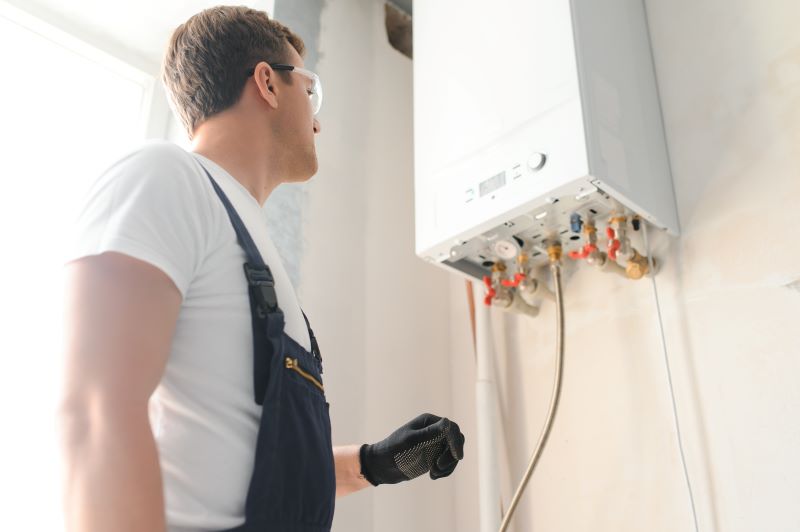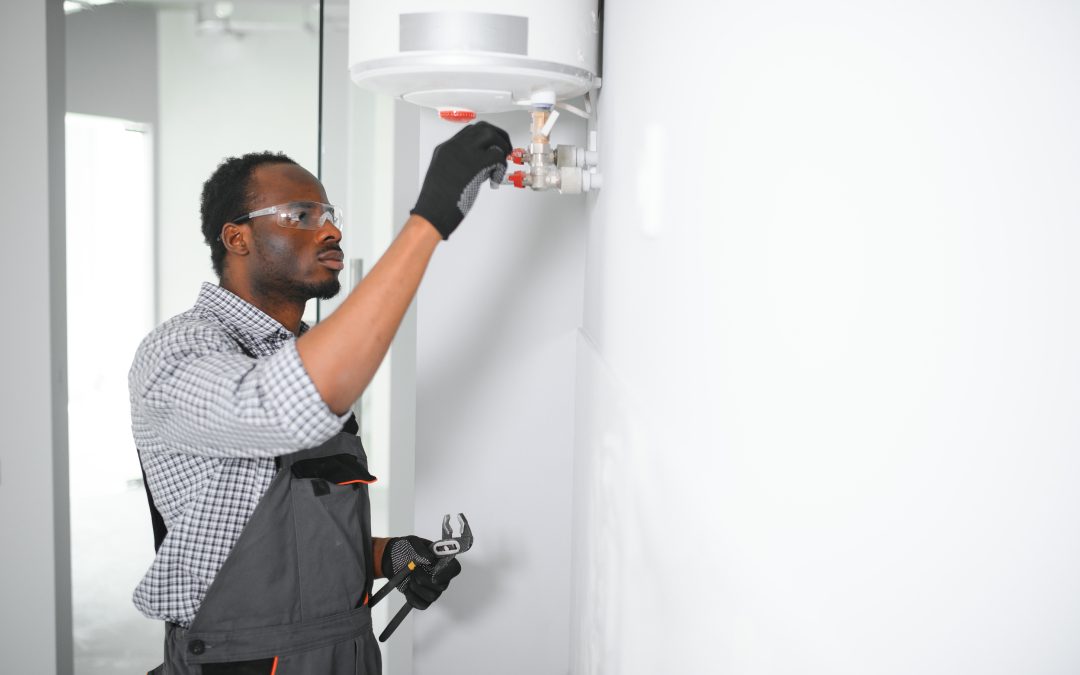Looking for ways to be a greener society without sacrificing heat, means searching for alternative ways to fuel our boilers, a biomass boiler installation may be the answer…
Though there’s currently no outright ban on gas boilers, the UK is poised to cut the amount of natural gas used in heating in the near future. If a heat pump isn’t your thing, perhaps a biomass boiler installation can be a worthy alternative?
Biomass boilers aren’t nearly as popular as those that burn natural gas, but they could be an attractive option for those looking to reduce their CO2 emissions.
What do you need for a biomass boiler?
Biomass boilers need more direct involvement than something like an electric or gas boiler.
This is because the fuel they use—biomass, naturally derived material like wood and pellets made from various organic matter—needs to be fed into the boiler as opposed to the always-on supply of gas that feeds the majority of UK homes.
So, to keep a biomass boiler running, you’ll need to buy and store its fuel in the form of logs, chips, or pellets, which have to be loaded into the boiler for burning. Running out of fuel means no heating until you can get more.
You’ll also need the budget for a biomass boiler because they have a high upfront cost (though there is financial support for eco boiler upgrades).
Finally, you need the appropriate space to fit the boiler given they can be several times larger than the convenient and compact design of gas-burning equivalents.
Do I need planning permission for a biomass boiler?
It depends on the size of the boiler and where the installation is taking place.
A boiler installation where all work is indoors, apart from a routine flue installation that follows all the usual building regs, will not need any planning permission. For all intents and purposes, it should be like any other boiler installation.
However, if the boiler is particularly large and needs an designated structure built to house it and/or its fuel stores, then you might need to secure planning permission before anything else can go ahead with your biomass boiler installation.
Do biomass boilers run all the time?
As mentioned earlier, biomass boilers need their fuel to be actively replenished unlike those fed from a constant supply of electricity or gas. They will run all the time as long as their fuel supply is kept up.
Biomass boilers also need more regular maintenance to keep running smoothly. Since they’re burning solid fuel for their heat, they need to be swept and emptied of ash on roughly a weekly basis.
Some designs of biomass boiler have automatic feeding hoppers that will deposit the fuel as necessary, which limits some of the upkeep needed by owners.
However, no matter the model you buy and install, there will be regular work involved in keeping it running reliably, and some of that will necessarily mean being unable to use your boiler even if only for a short while at a time.
And, like any boiler, your biomass system will need a regular boiler service to ensure it’s running correctly.
How much space do I need for a biomass boiler?
Biomass boilers vary in size between models and intended fuel types. Models designed to take chips and pellets can be as relatively modest in size as a bulky fridge freezer, whereas others are more like tanks large enough to stand inside.
For the majority of domestic properties, a biomass boiler will be small enough to install inside the home, though it will likely need a different environment to your existing boiler.
Combi boilers can often fit into snug spaces like cupboards and alcoves, whereas biomass boilers are bigger and demand enough room for air flow.
You also need to consider storage for its fuel, which you likely won’t want to drag from one end of your property to the other every time you need to top up. This fuel will of course need to be kept dry, so it might be that your existing space in a dank cellar is large enough for a biomass boiler and fuel storage, but not quite up to scratch without some remedial work.
Can I install a biomass boiler?
If you have the available space and budget for a biomass boiler, then the next best step is to speak to a qualified boiler installer. You can explain what you’re hoping to change and get some sound advice and guidance before committing to the idea.
Don’t forget that although your biomass boiler won’t be using a gas supply, you will still need a fully qualified, Gas Safe-registered engineer to work on your existing gas boiler.
They’ll not only need to remove the existing boiler but also deal with capping its redundant gas supply, which requires proper training and knowledge to do safely.
Installing a biomass boiler should only be undertaken by a trained installer, same as any other heating system.
Are biomass boilers worth it?
Biomass boilers can definitely be worthwhile for homeowners looking to reduce their carbon output. However, they shouldn’t be looked at as an easy swap.
Biomass boilers aren’t cheap, and can be significantly more expensive than even a brand-new combi boiler. They need more considerations for their installation and they need knowledge of the best fuel to buy and where you can reliably buy it.
For people who can answer positively all of these questions, they’re definitely worth considering. Otherwise, you might want to reconsider how you intend to keep heating your home.
If you’re located in the North West and need a reliable boiler service provider, contact Bumblebee Plumbing & Heating.
Our friendly team will take a few details from you and get you sorted in no time at all.
Contact us now to arrange a service or learn about boiler installation costs.




